Access to Océanolab is included in the Océanopolis entrance ticket during Océanolab’s opening days and times.
Océanolab is open to children from the age of six.
Océanolab is accessible for people with reduced mobility.
News
A new visitor space at Océanopolis: Océanolab now open!

We are delighted to announce the opening of Océanolab, a brand-new visitor area dedicated to science and the oceans!
Océanolab is a unique concept offering visitors total immersion and the chance to observe live scientific experiments and gain a better understanding of the impact of global change on marine biodiversity.
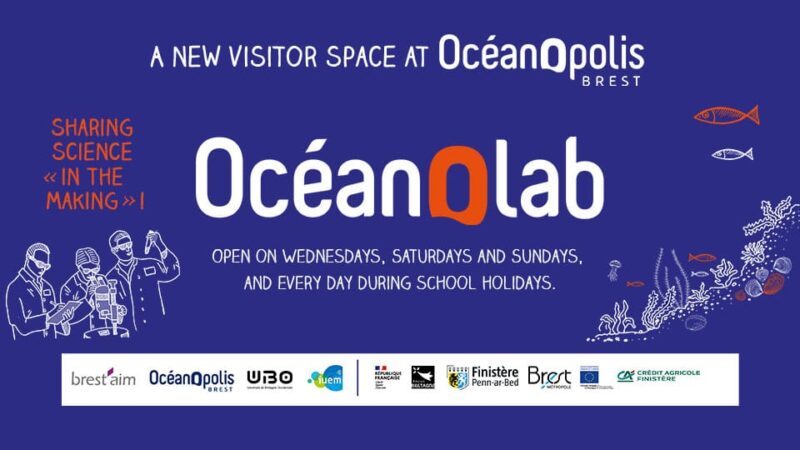
Océanolab is a programme designed by Océanopolis in conjunction with the European Institute for Marine Studies (IUEM) and the Université de Bretagne Occidentale (UBO). It consists of bringing together scientists and citizens around marine ecology research projects in a context where we are experiencing climate change, pollution and biodiversity erosion.
The objectives of the Océanolab programme are to share with the public ‘science in the making’. In other words, exhibiting in real time scientific work over the course of a year within a dedicated space in the heart of Océanopolis.
Against a background of misinformation and a loss of confidence in science, it is also a question of helping the public to discover the scientific approach and develop their critical thinking.
Furthermore…
Océanolab opened its doors on Wednesday March 29 and looks forward to welcoming you on Wednesdays, Saturdays and Sundays from 2pm to 5pm.


Access to Océanolab is included in the Océanopolis entrance ticket during Océanolab’s opening days and times.
Océanolab is open to children from the age of six.
Océanolab is accessible for people with reduced mobility.


Océanolab is open everyday during the school holidays.
Outside the school holiday periods, Océanolab is open on Wednesdays, Saturdays and Sundays from 2pm to 5pm.
From April 15 to May 1 inclusive:
From May 2 to 8 inclusive:
Increased temperatures, the acidification of seawater, the rapid phenomena of desalination, the presence of microplastics and even deoxygenation are the consequences of the global changes our coastal areas will be facing in the future.
The scientific experiments hosted at Océanolab are designed to study the impacts of these global changes on marine biodiversity, and particularly on certain species such as oysters, abalones and clams.
Therefore, the first two projects being hosted, one in 2023 and the other in 2024, are linked to the current issues of climate change, biodiversity decline and pollution. The scientific projects being hosted at Océanolab are part of the region’s challenge to preserve the environment while adapting to the transformations in progress.

The first research programme being hosted in the Océanolab space is called ‘MicroCO2sme – Microplastics in a CO2-rich ocean: use of mesocosms to assess the impacts on a temperate ecosystem’.
The MicroCO2sme project is being led by a team of scientists from Ifremer, France’s research institute for the oceans, and CNRS, the country’s national scientific research centre. The project aims to study the vulnerability of a native oyster species called the flat oyster (Ostrea edulis).
The question the scientists are tackling is how flat oysters and their associated communities will be affected by temperature, pH and plastic pollution conditions by 2100.
To achieve this, four experimental basins in triplicate have been installed in Océanolab. These make it possible to study several different conditions varying from a single factor to combined factors. Samples will be taken throughout the year in order to analyse and assess the impacts on flat oysters and the biodiversity associated with them on oyster reefs. The aim is to understand, over the long term, the effects at the level of the individual, population and community.
The second research programme being hosted by Océanolab concerns the European abalone, an emblematic species around the Breton coast.
Abalone populations have suffered a major decline since the late 1990s due to the impact of a pathogenic bacterium called Vibrio harveyi. For several years now, scientists and those working in the shellfish sector have been working together to restore decimated natural populations. However, global changes pose a major question regarding the ability of abalone populations to cope with rapid changes in their natural environment: rising temperatures, acidification of water etc.
So, in 2024, an experiment will be conducted at Océanolab to explore how abalones can respond to environmental changes.



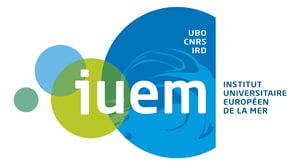

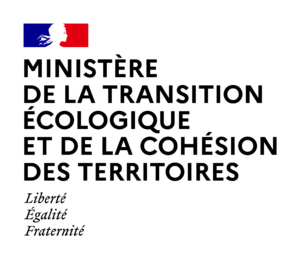
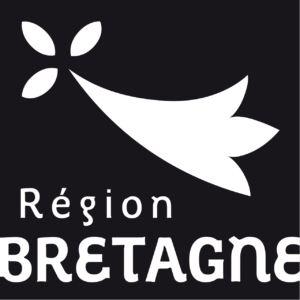


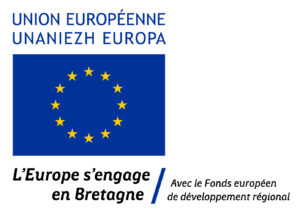
![]()
Ouverture le lundi 14 juillet
Océanopolis est bien ouvert ce lundi 14 juillet de 9h30 à 19h.
À noter : les pavillons tropical et polaire sont fermés pour rénovation.
Nous vous recommandons d’acheter votre billet en ligne avant de vous déplacer.
Billets CSE et abonnés : présentez-vous directement au contrôle d’accès, sans réserver.